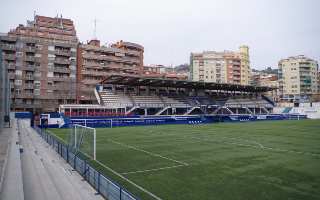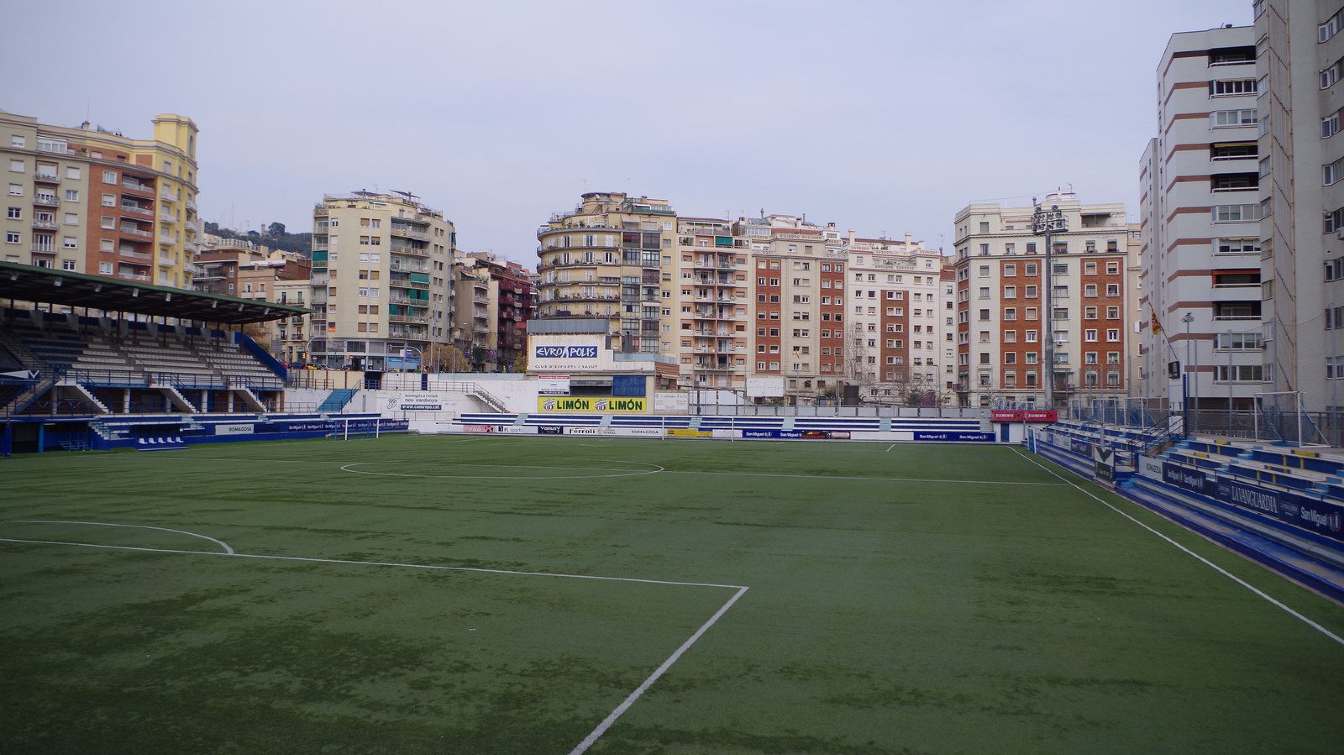Spain: CE Europa fights for survival
source: StadiumDB.com; author: Paulina Skóra
 CE Europa, a century-old football club based in Barcelona’s Gràcia district and one of the original founding members of La Liga, is now facing a crisis that threatens its very existence.
CE Europa, a century-old football club based in Barcelona’s Gràcia district and one of the original founding members of La Liga, is now facing a crisis that threatens its very existence.
Advertisement
Artificial turf, real consequences
Despite recently celebrating a double promotion — both the men's and women’s teams have ascended to Spain’s third tier, the Primera Federación — new league regulations could force the club to abandon its iconic stadium, Nou Sardenya.
At the heart of the issue lies the league’s requirement for natural grass pitches at this level. Nou Sardenya, however, features artificial turf, which does not meet current standards. While the stadium is municipally owned, CE Europa enjoys a 100-year right to use the facility. Unfortunately, installing natural grass is not a viable option. Directly beneath the playing surface is a public parking garage, making any significant redevelopment technically and financially unfeasible. Moreover, the city has already stated that it is unwilling — and unable — to fund such a renovation, especially one that would jeopardize youth activities involving over 1,000 children who train there each week.
While waiting for important decisions regarding sports infrastructure, fans often turn to alternative forms of online entertainment — and sports betting remains one of the most popular choices. Visit sentragoal.gr to stay up to date with the latest betting slips, match analyses, and key league predictions. According to club officials, being forced to relocate outside the Nou Sardenya and Barcelona metropolitan area would be devastating. It would mean the end of the club,
they say bluntly. Currently, the league allows newly promoted teams to play on artificial turf only until January 15. Before July 17, the club must register an alternative venue with natural grass if no regulatory changes are made.
Grassroots resistance
Unlike many professional teams, CE Europa operates as a member-owned club with no external investors or wealthy benefactors. In response to the crisis, the club has launched a crowdfunding initiative under the banner Somos la resistencia
— We are the resistance.
The campaign is not just about raising money, but also about mobilizing public support and highlighting what many see as unfair treatment of small, community-based clubs. The federation doesn’t support neighborhood football,
laments the club’s board.
This is more than a battle for compliance. CE Europa is defending a way of life — a community-centered football culture that thrives not in commercial arenas but in local stadiums, filled with families and lifelong supporters. With the January 15 deadline looming, the club is determined to rally support, challenge the rules, and preserve its place in the heart of Gràcia. The fight is not just for a stadium — it’s for identity, heritage, and the soul of grassroots football.
Advertisement
 StadiumDB
StadiumDB ©
©